Environment
-
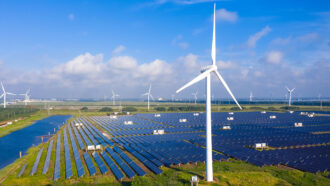 Climate
ClimateGreen energy is cheaper than fossil fuels, a new study finds
Switching over to clean, renewable power — and away from fossil fuels — could save trillions of dollars by 2050, a new study finds.
By Laura Allen -
 Climate
ClimateExplainer: What is decarbonization?
Lowering carbon levels in our atmosphere to stabilize the climate may start with switching from fossil fuels to greener energy sources.
By Laura Allen -
 Environment
EnvironmentMicroplastic pollution aids viruses and prolongs their infectivity
The tiny plastic bits give these germs safe havens. That protection seems to increase as the plastic ages and breaks into ever smaller pieces.
-

-
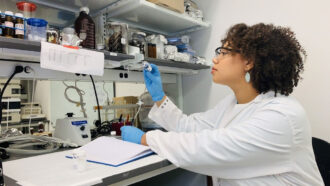 Environment
EnvironmentThis chemist uses online videos to teach about the perils of microplastics
Imari Walker says her journey as a scientist and science communicator lets her talk about and advocate for her passion.
-
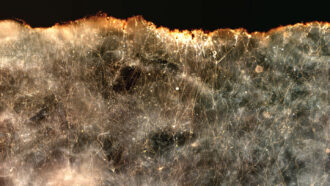 Environment
EnvironmentBacterial ‘living wires’ could help protect the seas and climate
Long, thin bacteria that conduct electricity may be able to help clean up oil spills and reduce emissions of methane, a powerful greenhouse gas.
By Nikk Ogasa -
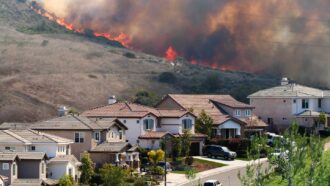 Earth
EarthAnalyze This: Wildfires are pumping more pollution into U.S. skies
Researchers wanted to study the health effects of wildfire smoke. But they realized they didn’t know where it was and how much exposure people had.
-
 Environment
Environment‘Forever’ chemicals show up in students’ school uniforms
Researchers found PFAS “forever chemicals” in kids’ school uniforms and other clothing. Studies have linked these compounds to health risks.
-
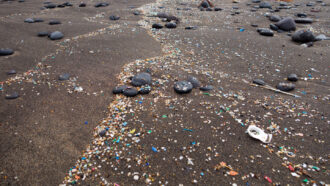 Materials Science
Materials ScienceLet’s learn about microplastics
Microplastics have turned up everywhere from the highest mountains to the bottom of the ocean — and even inside animals and people.
-
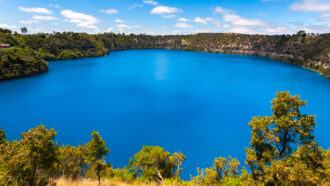 Climate
ClimateWarming temps could turn some blue lakes green or brown
Slightly warmer summers could cause thousands of blue lakes to become a murky green or brown, according to a tally of color in 85,000 lakes worldwide.
-
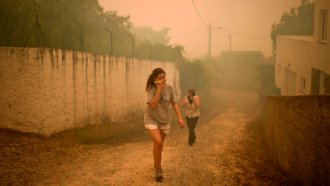 Health & Medicine
Health & MedicineWildfire smoke seems to pose its biggest health risk to kids
New studies, some of them in young monkeys, point to vulnerabilities affecting kids' airways, brains and immune systems.
By Megan Sever -
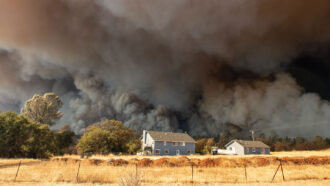 Environment
EnvironmentWestern wildfire smoke poses health risks from coast to coast
As wildfires become more common, their hazardous smoke is sending East Coast residents — especially children — to emergency rooms.
By Megan Sever